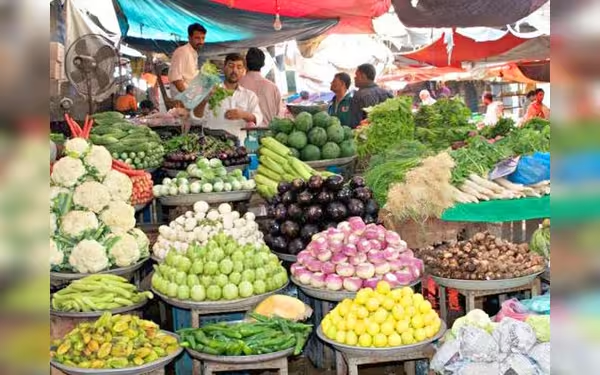Saturday, November 16, 2024 07:34 PM
Rising Food Prices Fuel Inflation in Pakistan
- Food prices rise, impacting overall inflation rates.
- 16 monitored items saw price increases last week.
- Policymakers urged to stabilize food costs.
 Image Credits: tribune.com.pk
Image Credits: tribune.com.pkRising food prices in Pakistan contribute to inflation, affecting households and prompting calls for government intervention.
In recent weeks, the economic landscape of Pakistan has been significantly impacted by rising food prices, which have contributed to an increase in inflation. The Sensitive Price Indicator (SPI), a key measure used to track inflation, recorded a slight uptick of 0.05% for the week ending September 26. This rise in inflation is particularly concerning as it partially reverses the slowdown that was observed in the previous week, indicating that the cost of living continues to be a pressing issue for many households.
During the week in question, the prices of 16 items, accounting for 31.37% of the total items monitored, saw an increase. In contrast, the rates of nine items, or 17.65%, decreased, while 26 items, making up 50.98%, remained unchanged. This fluctuation in prices highlights the volatility of the market and the challenges consumers face when budgeting for their daily needs.
Food prices are a significant component of the SPI, and their rise can have a ripple effect on the overall economy. When food becomes more expensive, families often have to make tough choices, such as cutting back on other essential expenses. This situation can lead to increased financial strain, particularly for low-income households that spend a larger portion of their income on food.
It is essential for policymakers to address these rising costs and implement measures that can stabilize food prices. This could involve improving supply chain efficiencies, reducing tariffs on essential goods, or providing subsidies to farmers to encourage production. By taking proactive steps, the government can help alleviate some of the financial burdens faced by citizens.
The recent increase in food prices and its contribution to inflation is a reminder of the ongoing economic challenges in Pakistan. As families navigate these rising costs, it is crucial for both the government and the community to work together to find solutions that ensure food security and economic stability. Understanding these dynamics is vital for making informed decisions about personal finances and advocating for necessary changes in policy.













